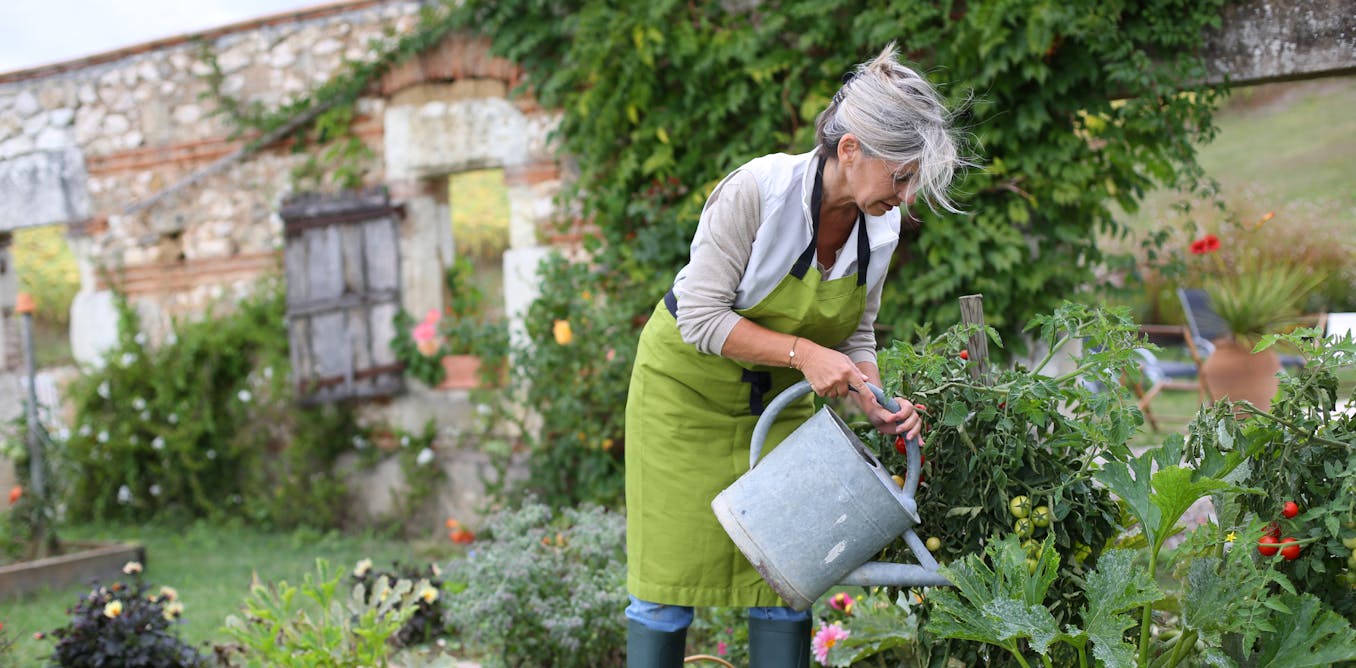[ad_1]
As a result of the local weather warms and days lengthen, your consideration is also turning to that forgotten patch of your yard. This week we’ve requested our consultants to share the science behind gardening. So seize a trowel and your inexperienced thumbs, and dig in.
“That’s all very properly put,” says Candide, inside the final line of Voltaire’s novel of the equivalent title, “nonetheless we should always go and work our yard.”
I studied this textual content material at highschool sooner than I grew to grow to be a gardener {{and professional}} horticulturist. We had been taught that Candide’s gardening essential was metaphorical not literal; a command for finding an real vocation, not a reputation to take up trowels and secateurs.
Truly, Voltaire himself truly believed that energetic gardening was an efficient method to stay sane, healthful and free from stress. That was 300 years previously.
As a result of it appears, the science suggests he was correct.
The science of therapeutic horticulture
Gardens and landscapes have prolonged been designed as sanctuaries and retreats from the stresses of life – from good metropolis inexperienced areas much like Central Park in New York to the humblest suburban yard. Nonetheless previous the passive enjoyment of a yard or of being in nature additional sometimes, researchers have moreover studied the place of actively caring for vegetation as a therapeutic and educational system.
“Therapeutic horticulture” and “horticultural treatment” have develop to be recognised therapies for stress and despair, which have served as a therapeutic assist in settings ranging from prisons and psychological effectively being remedy providers to varsities and hospitals.
Gardening and school
Analysis of faculty gardening functions – which frequently centre on rising meals – current that school college students who’ve labored on designing, creating and sustaining gardens develop additional optimistic attitudes about effectively being, vitamin and the consumption of greens.
As well as they ranking larger on science achievement, have larger attitudes about school, and improve their interpersonal experience and classroom behaviour.
Evaluation on school college students confirms that gardening leads to bigger ranges of vanity and obligation. Evaluation signifies that incorporating gardening proper right into a school setting can improve group cohesiveness.
Gardening and psychological effectively being
Tailored gardening functions have been confirmed to increase prime quality of life for folk with energy psychological ailments, along with nervousness and despair.
One different analysis on the utilization of therapeutic horticulture for victims with medical despair sought to understand why gardening functions had been environment friendly in lessening affected particular person experience of despair. They found that structured gardening actions gave victims existential aim. Put merely, it gave their lives meaning.
In jails and corrective functions, horticultural treatment functions have been used to offer inmates optimistic, purposeful actions that cut back aggression and hostility all through and after incarceration.
In a single detailed analysis from a San Francisco program, involvement in therapeutic horticulture was notably environment friendly in bettering psychosocial functioning all through jail populations (although the benefits weren’t primarily sustained after launch.)
Gardening has been confirmed to help improve the lives of navy veterans and homeless people. Assorted therapeutic horticulture functions have been used to help people with finding out difficulties, asylum seekers, refugees and victims of torture.
Gardening and older people
As populations inside the West age, hands-on gardening functions have been used for older people in nursing homes and related providers.
A scientific analysis of twenty-two analysis of gardening functions for older adults found that gardening was a powerful health-promoting train all through quite a few populations.
One analysis sought to understand if victims recovering from coronary coronary heart assault could revenue from a horticultural treatment program. It concluded:
[Our] findings level out that horticultural treatment improves mood state, suggesting that it could be a helpful gizmo in decreasing stress. As a result of this truth, to the extent that stress contributes to coronary coronary coronary heart sickness, these findings assist the place of horticultural treatment as an environment friendly ingredient of cardiac rehabilitation.
Whereas the literature on the optimistic outcomes of gardening, reflecting every qualitative and quantitative analysis, is massive, most of these analysis are from overseas.
Funding in horticultural treatment functions in Australia is piecemeal. That talked about, there are some standout success tales such as a result of the Stephanie Alexander Kitchen Yard Foundation and the work of nurse Steven Wells on the Royal Talbot Rehabilitation Centre and previous.
Lastly, with out professionally expert horticulturists none of these functions – in Australia or internationally – can occur.
[ad_2]
